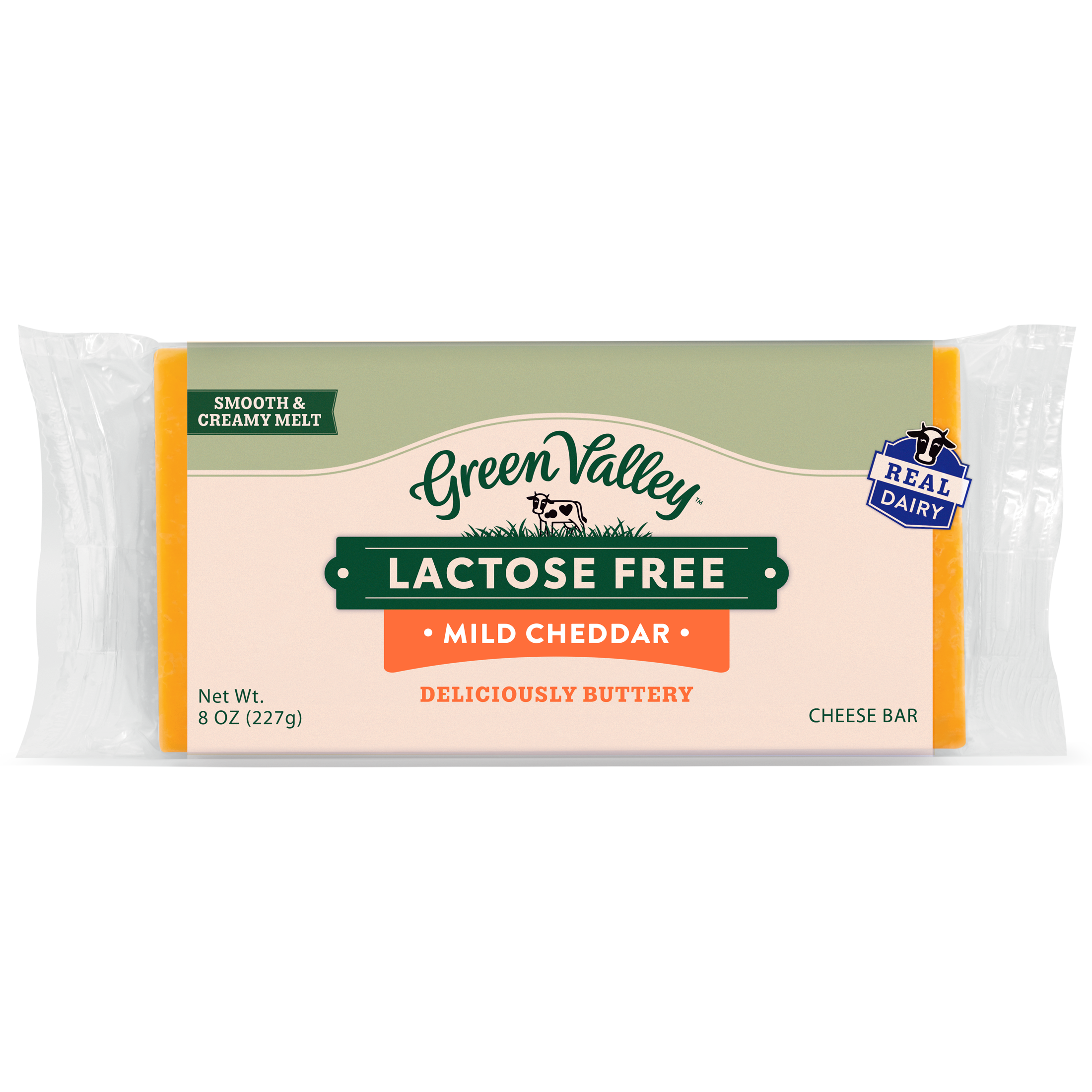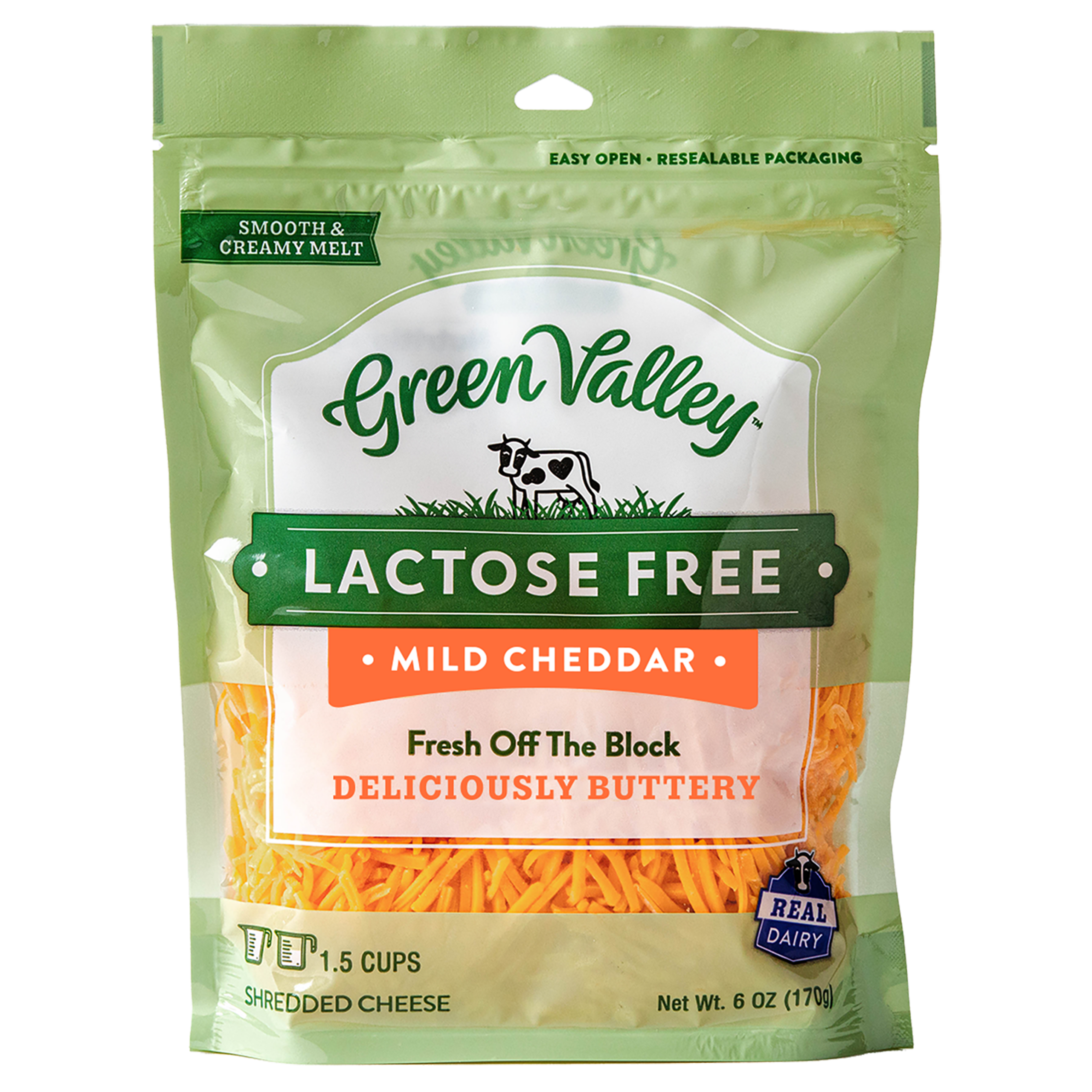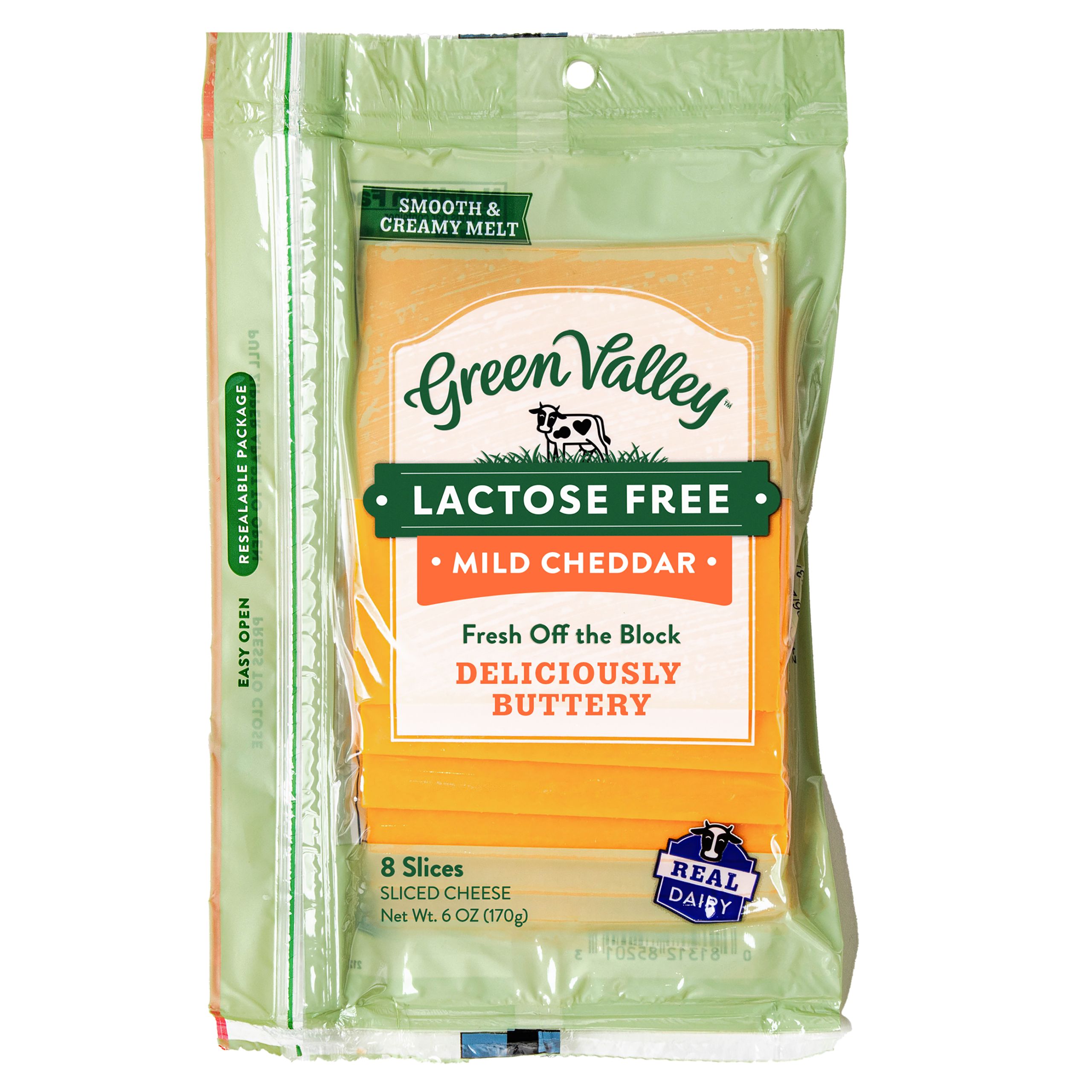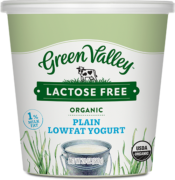Lactose Free Living
Power Up Your Morning with Protein
Most people probably know that protein is an essential nutrient for life. It’s required for muscle repair, making new muscle tissue, hormones, and for cell growth and development in children, teens, and pregnant women. However, you may not know that the timing of protein intake and spreading protein throughout the day is equally as important.

Our typical breakfast foods such as cereal, muffins, pastries, bagels, and pancakes are poor protein sources. We may eat eggs for breakfast or a little more protein at lunch, but by and large Americans eat most of their daily protein, over 60%, at dinner. Eating higher amounts of protein at dinner, more than 40g, cannot be used for muscle repair and is either used for energy or stored as fat. As carbohydrates and fats are much more efficient sources of energy for the body, we don’t want to use protein in this way. Thus, a better approach is to eat similar amounts of quality protein at each meal, particularly starting with breakfast. Here are several reasons why eating protein at breakfast is essential.

Healthy Breakfast Spread
Blood Sugar Management
Including protein and fat in a meal containing carbohydrates plays a crucial role in balancing blood sugar and preventing large spikes after a meal. Studies have shown that a high-protein, compared to a high-carbohydrate breakfast, reduces how much our blood sugar rises after breakfast and after subsequent meals later in the day. A high-protein breakfast may act as a primer for better hormonal control and insulin response to carbohydrates throughout the day. Consuming 30 g of high-quality, complete protein (containing all nine essential amino acids) at breakfast appears to have the most significant effect on blood sugar management and satiety.
Weight Management
Consuming breakfast has been associated with lower body weight and sustained weight maintenance. Eating a high-quality, protein-rich breakfast of at least 30 g has also been shown to increase fullness while reducing appetite, food cravings, and neural signals that regulate reward-driven eating behavior. Research suggests that protein prevents the secretion of hunger hormones and stimulates the secretion of satiety hormones. In addition, protein may blunt the brain’s response to food stimuli, decreasing food motivation and cravings. The increased satiety that protein stimulates versus carbohydrate or fat helps you feel full longer and may reduce overall calories and particularly late-night snacking on foods high in sugar and fat.
Muscle Health
Adults who eat a high-protein breakfast may make more new protein and have better muscle function. Studies comparing adults who ate more protein at breakfast than dinner showed a positive association between a high-protein breakfast, increased muscle mass, and better muscle function. Research suggests that our circadian rhythm plays a role in how dietary protein creates new muscle and repairs existing muscle tissue. Thus, eating more protein at breakfast may help activate our circadian rhythms, leading to a healthier muscle response.
Gut Health
Tryptophan is an essential amino acid or one of the building blocks of protein in the body. While research in this area is relatively new, preliminary studies show that tryptophan may play a role in stimulating the growth and development of new cells in the gut, preventing microorganisms from causing damage, and inflammation and keeping our immune cells in balance. Green Valley Kefir and Yogurt are sources of complete protein, containing all nine essential amino acids, including tryptophan, and are great high-protein breakfast options. In addition, kefir and yogurt are probiotic-rich foods. Regular consumption of probiotic-rich foods helps increase the good bacteria in the gut to improve digestion and overall gut health.
So, how can we eat more protein at breakfast? Here are several delicious ways:
Very Berry-Kefir Smoothie – Blend 1 cup Green Valley Lactose-Free Plain Kefir, 1/2 scoop protein powder, 1cup frozen mixed berries, 1 tsp maple syrup, and ½ tsp pure vanilla extract.

Creamy Scrambled Eggs with Kefir –3 eggs with 3 Tbsp Green Valley Lactose-Free Plain Kefir and seasoning whisked into the eggs before cooking. Serve with a slice of sprouted whole grain toast for additional protein.

Power Pancakes – Combine 3/4 cup Green Valley Lactose-Free Plain Kefir, 2 eggs, 2 scoops protein powder and 1 tsp baking powder to make your pancake batter. Lightly pan-fry the pancakes on both sides with a touch of Green Valley Lactose-Free Butter.
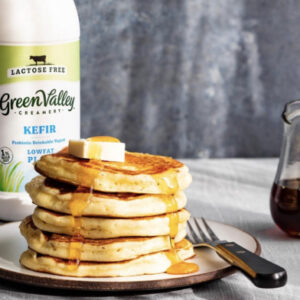
Gut-Boosting Overnight Oats – Combine 1/3 cup Green Valley Lactose-Free Blueberry Pomegranate Acai Kefir, 1/4 cup Green Valley Lactose-Free Vanilla Yogurt, 1/4 cup old fashioned rolled oats, 2 tsp chia seeds, 1 tsp ground cinnamon, and 1/4 cup of fresh or frozen blueberries in a jar with a lid. Cover and shake until combined and refrigerate 8 hours or overnight. Add 1-2 tsp maple syrup for additional sweetness if needed.

Power Seed Yogurt Bowl– 3/4 cup Green Valley Lactose-Free Vanilla Yogurt, 1 Tbsp old fashioned rolled oats, 2 tsp chia seeds. 1/4 cup pumpkin seeds, 1/2 cup mixed fresh or frozen berries, 1 tsp pure vanilla extract. Add 1-2 tsp maple syrup for additional sweetness if needed.

References:
1. Park Y-M, Heden TD, Liu Y, et al. A High-Protein Breakfast Induces Greater Insulin and Glucose-Dependent Insulinotropic Peptide Responses to a Subsequent Lunch Meal in Individuals with Type 2 Diabetes. The Journal of Nutrition. 2015;145(3):452-458. doi:10.3945/jn.114.202549
2. Kubota S, Liu Y, Iizuka K, Kuwata H, Seino Y, Yabe D. A Review of Recent Findings on Meal Sequence: An Attractive Dietary Approach to Prevention and Management of Type 2 Diabetes. Nutrients. 2020;12(9):E2502. doi:10.3390/nu12092502
3. Gwin JA, Leidy HJ. A Review of the Evidence Surrounding the Effects of Breakfast Consumption on Mechanisms of Weight Management. Adv Nutr. 2018;9(6):717-725. doi:10.1093/advances/nmy047
4. Astbury NM, Taylor MA, Macdonald IA. Breakfast Consumption Affects Appetite, Energy Intake, and the Metabolic and Endocrine Responses to Foods Consumed Later in the Day in Male Habitual Breakfast Eaters. The Journal of Nutrition. 2011;141(7):1381-1389. doi:10.3945/jn.110.128645
5. Mamerow MM, Mettler JA, English KL, et al. Dietary Protein Distribution Positively Influences 24-h Muscle Protein Synthesis in Healthy Adults123. J Nutr. 2014;144(6):876-880. doi:10.3945/jn.113.185280
6. Aoyama S, Kim H-K, Hirooka R, et al. Distribution of dietary protein intake in daily meals influences skeletal muscle hypertrophy via the muscle clock. Cell Reports. 2021;36(1):109336. doi:10.1016/j.celrep.2021.109336
7. Nas A, Mirza N, Hägele F, et al. Impact of breakfast skipping compared with dinner skipping on regulation of energy balance and metabolic risk. Am J Clin Nutr. 2017;105(6):1351-1361. doi:10.3945/ajcn.116.151332
8. Jakubowicz D, Wainstein J, Tsameret S, Landau Z. Role of High Energy Breakfast “Big Breakfast Diet” in Clock Gene Regulation of Postprandial Hyperglycemia and Weight Loss in Type 2 Diabetes. Nutrients. 2021;13(5):1558. doi:10.3390/nu13051558
9. Farag MA, Jomaa SA, El-Wahed AA, El-Seedi AHR. The Many Faces of Kefir Fermented Dairy Products: Quality Characteristics, Flavour Chemistry, Nutritional Value, Health Benefits, and Safety. Nutrients. 2020;12(2):E346. doi:10.3390/nu12020346
10. Taleb S. Tryptophan Dietary Impacts Gut Barrier and Metabolic Diseases. Frontiers in Immunology. 2019;10:2113. doi:10.3389/fimmu.2019.02113

